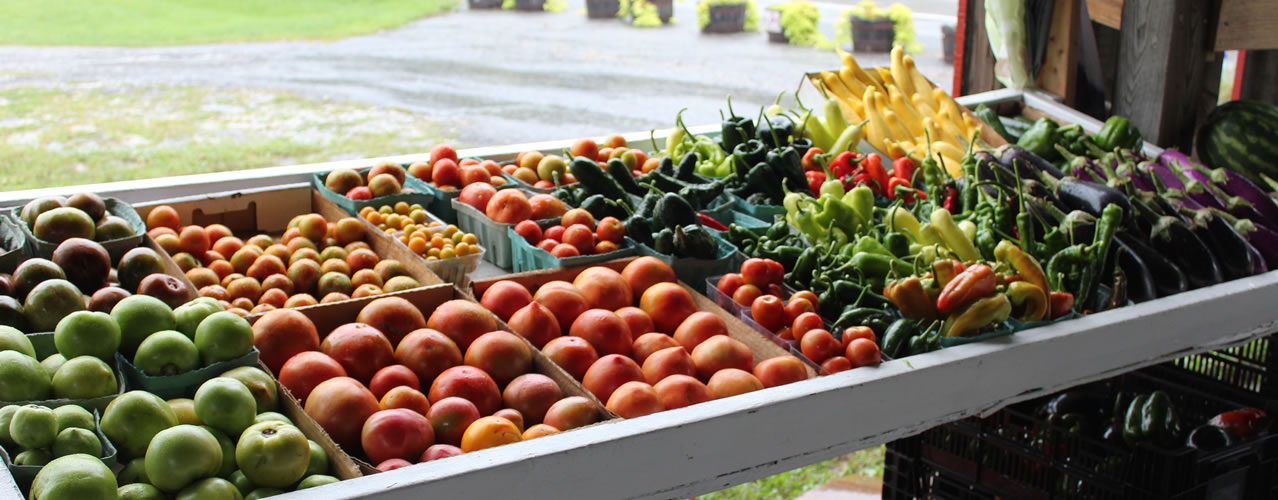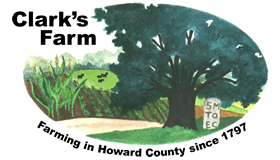Frequently Asked QuestionsClark's Farm, farming in Howard County since 1797.


Listed below are some of the questions we are often asked about our Produce.
We have different store hours throughout the year.
April 1 - early November: You can come to our Castle Store anytime the petting farm is open (Tuesday to Sunday 10 AM to 5 PM). Park in the petting farm parking lot, enter the Castle Store building, pick your items, and make your purchase. It's that easy
July 1 - September 5th: Clark's Produce Roadside Market will be open at the roadside stand seven days a week from 11 AM to 6 PM.
We will email out our newsletter and post on our website if we are closed due to weather.
No, our farm is not certified organic. However, we apply organic practices throughout our farm.
We do not use synthetic pesticides, herbicides, or fertilizers in our garden. We promote biodiversity, cover cropping, beneficial infections, crop rotations and more to encourage healthy soils, healthy crops, and a health environment.
At Clark's Farm we grow a large variety of crops. Kale, swiss chard, arugula, beets, carrots, broccoli, cauliflower, cabbage, spring onions, lettuce, box chop, tatsoi, spinach, tomatoes, (red, heirloom, and cherry), peppers, squash and zucchini, eggplant, melons, and cucumbers. We also grow fresh herbs basil, oregano, thyme, lemon balm, chives, garlic chives, sage, dill, and lavender. *subject to change.
April - November. We grow almost all year so that you can have fresh produce from the farm.
During the cool seasons of Spring and Fall we grow kale, swiss chard, arugula, beets, carrots, broccoli, cauliflower, cabbage, spring onions, lettuce, box chop, tatsoi, and spinach. During the warm summer months we grow lots of tomatoes (red, heirloom, and cherry), peppers, squash and zucchini, eggplant, melons, and cucumbers. We also grow throughout the Winter as much as possible with the help of row covers and an unheated High Tunnel. In the Winter we grow hardy greens such as kale, swiss chard, tatsoi, and arugula.
Our garden is chemical free. We do not use synthetic pesticides, herbicides, or fertilizers on our produce. We promoted biodiversity and healthy soils to produce healthy, delicious, nutrient-dense vegetables
